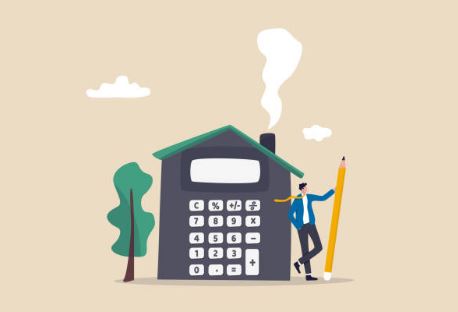After a run of unprecedented proportions that saw home prices reach new highs and mortgage rates plunge to record lows, the U.S. housing market finally is slowing. According to housing economists and analysts, despite the fact that price and demand growth is slowing, any correction is likely to be minor. Does a housing crash come? Maybe it is not.
Table of Contents
What is Housing Crash Coming and Are We in One?
A housing crash coming occurs when fewer homes are sold overall for a period of at least six consecutive months. So, do we currently experience a housing crash coming? Well, sort of, but since home prices aren’t in a recession, a housing recession isn’t something to be overly concerned about. It is accurate to say that the number of home sales fell for seven straight months starting in August 2022. By the end of 2022, home sales will have decreased 16.2%, according to Fannie Mae. But as we mentioned earlier, the growth in home prices continues to be higher than it was the year before.
We’re actually seeing a return to pre-pandemic levels of home sales volume because 2021 was a record-breaking year for sales. In other words, rather than a recession, this is more of a correction in the housing market.
It would only be prudent to be concerned about the market if the declining home sales were a sign of an excess of supply (houses for sale) and a dearth of buyer demand, which could lower home values and harm the economy as a whole. However, this is not the situation.
Will House Prices Go Down?
In 2022 and beyond, it is unlikely that home prices will decrease. Home prices won’t decrease in the upcoming years, according to Freddie Mac’s forecast, which calls for a slower growth rate of 4% in 2023.
Keep in mind that supply and demand are the only variables that could result in a decrease in home prices. Buyers wouldn’t have to fight as hard as before for such a small selection of homes if the number of houses up for sale began to soar. More homes for sale, however, would likely just help to level the market since we’ve had a supply shortage for a while.
However, there are ways that consumer demand could decline. The Federal Reserve, for instance, could keep raising the federal interest rate. While the Fed does not directly control mortgage rates, increases in federal rates typically result in increases in mortgage rates from lenders as well. In order to avoid paying those higher rates, some buyers might withdraw from the market. But once more, the pandemic caused a lot of buyers to postpone their plans to purchase a home. As a result, prices will continue to rise, albeit more slowly, as there is still a greater demand for homes than it is available.
Don’t panic if you’re considering selling now. The likelihood that you will still make a sizable profit is high because the average house price in 2022 is higher than in previous years. However, don’t count on it if you’re delaying a sale because you believe your home will soon double in value. You should base your decision to sell your home on the reality of your circumstances, not what you anticipate the market will do.
On the other hand, if you’re looking to buy, the slowing rate of price growth is beneficial to you. . . but the high-interest rates, not so much. Before you enter the housing market this year, you’ll want to make sure you’re actually prepared to buy a home. (Actually, any year will do. Being ready is always a good idea!)
As I already said, it’s challenging to forecast how home prices will evolve over time. Therefore, if you want to confidently purchase a home, do not stop saving for a sizable down payment. (I want your house to bring you blessings rather than harm.)
What are the Reasons the Housing Crash not Coming?
Economists in the housing industry cite five strong arguments for why no housing crash coming.
- Inventories are still very low: According to the National Association of Realtors, there was 3.2 months’ worth of available homes in August. That number was as low as a meager 2.0-month supply in February. Because there is still a dearth of available goods, many buyers are still forced to bid up prices. Furthermore, it suggests that a price crash won’t occur anytime soon due to the supply and demand equation.
- Builders didn’t build quickly enough to meet demand: After the previous crash, homebuilders drastically reduced their output and never fully resumed their pre-2007 levels. They can no longer purchase land or obtain regulatory approvals quickly enough to meet demand. Even though they are building as much as they can, a repeat of the overbuilding of 15 years ago seems unlikely. “The fundamental reason for the run-up in price is heightened demand and a lack of supply,” says Bankrate’s chief financial analyst Greg McBride, a CFA. “Supply and demand may rebalance as builders release more available homes onto the market, more homeowners decide to sell, and potential buyers are priced out of the market. It won’t happen immediately.”
- Demographic trends are creating new buyers: Homes are in high demand across the board. Due in large part to the rise of working from home, many Americans who already owned homes decided they needed larger homes during the pandemic. There are many millennials and they are at the height of their purchasing power. A young, expanding demographic that is eager to own a home is a Hispanic community.
- Lending standards remain strict: In 2007, “liar loans,” in which borrowers didn’t need to document their income, were common. Regardless of credit history or amount of down payment, lenders offered mortgages to the majority of people. These days, lenders set high standards for borrowers, and the majority of people applying for mortgages have excellent credit. The Federal Reserve Bank of New York reports that the average credit score for mortgage borrowers in the third and fourth quarters of 2021 reached a record high of 786. “If lending standards loosen and we go back to the wild, wild west days of 2004-2006, then that is a whole different animal,” says McBride. “When we start to notice prices being artificially driven up by lax lending standards, we start to worry about a crash.”
- Foreclosure activity is muted: Millions of foreclosures flooded the housing market in the years following the housing crash, driving down prices. It’s not like that anymore. A healthy equity buffer exists in the homes of the majority of homeowners. Lenders weren’t filing default notices during the height of the pandemic, pushing foreclosures to record lows in 2020.

What is Housing Market 2023?
Many people are attempting to predict how the housing market will behave in 2023 as 2022 comes to a close. According to some news headlines, the housing market downturn will get worse in the upcoming years. However, experts at the National Association of REALTORS and Freddie Mac forecast that in 2023, home prices will soften to a more normal growth rate of 2–4% and that the number of home sales will either experience no increase or slow to 5.4 million, there is not a housing crash coming.
Just keep in mind that the news frequently exaggerates stories to catch your attention. Consider the data rather than the headlines. For instance, a news story’s headline might state that the housing market will deteriorate in 2023. But as time goes on, you learn that what they really mean is that home prices will increase more slowly. The word worsen makes it sound scary (and clickable). The truth is that slower growth doesn’t necessarily indicate a crash.
Interest Rates
Remember that interest rates have an impact on your home’s overall cost! A 15-year fixed-rate mortgage averaged 2.3% in 2021, while a 30-year fixed-rate mortgage averaged 3%. Interest rates were at an all-time low.
The fact that the Federal Reserve raised its benchmark interest rate multiple times to combat high inflation is a significant factor in the equation. The Fed does not set mortgage rates, but all borrowers are subject to the effects of its decisions. Mortgage rates will therefore reach about 6% for a 15-year fixed-rate mortgage and 7% for a 30-year fixed-rate mortgage by the last week of September 2022 as a result of rising Fed rates and inflation. (Additionally, the Fed anticipates raising interest rates for the remainder of this year. Oof.)
Despite daily changes, interest rates today are significantly higher than they were in 2021. This is bad news because it will force new buyers to pay thousands of dollars more in interest over the course of owning a home. Your purchasing power decreases as interest rates rise, making some homes completely out of your price range.
Housing Inventory
It appears that there won’t be many homes for sale later this year when it comes to housing inventory. At the end of August 2022, there were 1.28 million existing homes on the market (excluding newly constructed homes), roughly the same amount as in August 2021. There would need to be twice as many homes available for sale in order to significantly slow the market.
What are the Current Housing Market Key Takeaways for Buyers and Sellers?
If you’re prepared, the remaining months of 2022 might be a great time to purchase a home. If you’re not, it might also be a bad time to buy. However, you cannot let the state of the housing market dictate your decision.
Your personal financial situation and stage of life are what really matter when purchasing a home. You’re ready to buy a house if (and only if) you can check off these boxes:
- You’re debt-free.
- Three to six months’ worth of expenses are in your emergency fund.
- On a 15-year fixed-rate mortgage, your monthly house payment will be no more than 25% of your take-home pay.
- You’ve put down money. Since you can avoid paying private mortgage insurance (PMI) with a 20% down payment, this is ideal. However, if you’re a first-time home buyer, 5–10% is also acceptable. Simply be ready to pay PMI. Avoid FHA and VA loans as well because you will end up paying much more in interest and fees.
- Without depleting your down payment, you can pay the closing costs upfront.
It doesn’t matter if the housing crash coming on your side if you don’t meet these requirements. Purchasing a home would turn out to be a curse rather than a blessing. Take your time to improve your financial situation so that you can purchase a home legally.
FAQ
When Will the Housing Market Crash Again?
The data suggests that the housing market is not likely to crash in the near future because it is very different from the one that led to the Great Recession of 2007–2009.
There won’t be many foreclosures because lending regulations are more stringent now. Additionally, the housing supply is still incredibly low and is unlikely to catch up for a few years, so there is little to no risk of a sharp decline in home prices.
When Will Housing Prices drop?
For years, there was a rapid increase in home prices. Even though the hot market is starting to cool off a bit, an equally abrupt drop is not anticipated anytime soon. A price plateau rather than a sharp decline is more likely, according to Greg McBride, CFA, Bankrate’s chief financial analyst. Matthew Pointon, a senior property economist at Capital Economics, predicts a slowdown by mid-2023 rather than a freefall.
How many houses Can I Afford?
It depends on your monthly income compared to your monthly debt and expense payments. The 28/36 percent rule of home affordability, which states that you shouldn’t borrow more than 36 percent of your gross monthly income overall and shouldn’t spend more than 28 percent of it on housing costs, is advocated by many financial advisors. You can do some number crunching with the aid of Bankrate’s home affordability calculator.



